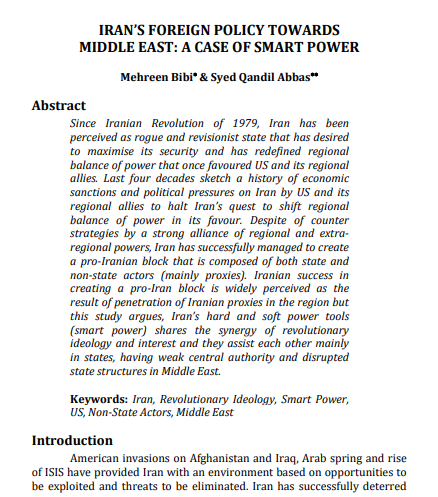IRAN’S FOREIGN POLICY TOWARDS MIDDLE EAST: A CASE OF SMART POWER
Keywords:
Iran, Revolutionary Ideology, Smart Power, US, Non-State Actors, Middle EastAbstract
Abstract
Since Iranian Revolution of 1979, Iran has been perceived as rogue and revisionist state that has desired to maximise its security and has redefined regional balance of power that once favoured US and its regional allies. Last four decades sketch a history of economic sanctions and political pressures on Iran by US and its regional allies to halt Iran’s quest to shift regional balance of power in its favour. Despite of counter strategies by a strong alliance of regional and extra regional powers, Iran has successfully managed to create a pro-Iranian block that is composed of both state and non-state actors (mainly proxies). Iranian success in creating a pro-Iran block is widely perceived as the result of penetration of Iranian proxies in the region but this study argues, Iran’s hard and soft power tools (smart power) shares the synergy of revolutionary ideology and interest and they assist each other mainly in states, having weak central authority and disrupted state structures in Middle East.

Downloads
Published
How to Cite
Issue
Section
License
License Terms








